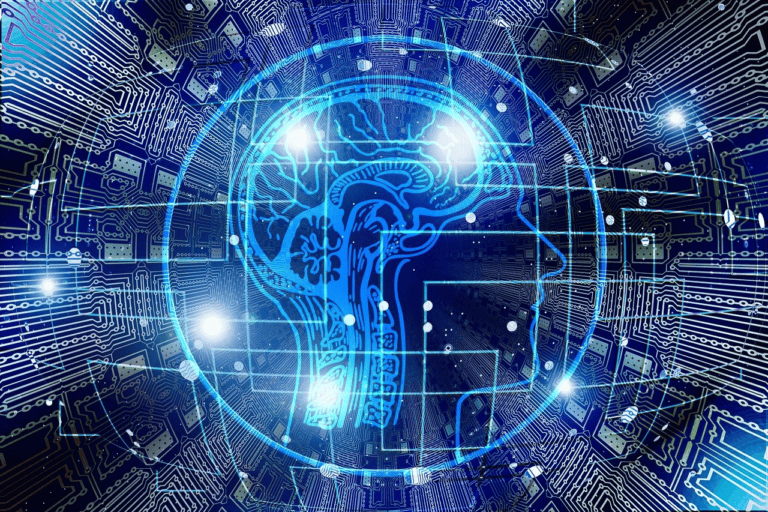The Role of Emotional Intelligence in Conflict Resolution
Emotional intelligence is increasingly recognized as a critical factor in effective conflict resolution. The ability to understand and manage emotions, both in oneself and in others, can significantly impact the outcome of conflicts, whether in personal or professional settings. By recognizing the role of emotions in conflict, individuals can develop strategies to navigate and resolve disputes more effectively.
But how does emotional intelligence actually influence the dynamics of conflict resolution, and what practical steps can be taken to harness its power? Let's explore the intricacies of emotional intelligence and its pivotal role in achieving successful conflict resolution.
Key Takeaways
- Emotional intelligence plays a crucial role in conflict resolution by promoting self-awareness, emotional regulation, empathetic communication, and social skills.
- Effective communication and understanding are essential in conflict resolution, including nonverbal communication, active listening, asking clarifying questions, and fostering trust and empathy.
- Emotion recognition and management are important in conflict resolution, involving techniques such as emotion regulation, empathy training, self-reflection, and building mutual understanding and trust.
- Strategies for resolving conflict positively include conflict de-escalation techniques, negotiation tactics, focusing on common interests and objective criteria, and adopting a cooperative mindset.
Understanding Emotional Intelligence
Understanding emotional intelligence is a crucial aspect of navigating and resolving conflicts effectively. Emotional intelligence encompasses a range of skills, including emotional regulation, self-awareness, empathetic communication, and social skills, all of which are essential for managing conflicts in a constructive manner.
Self-awareness is the foundation of emotional intelligence. It involves recognizing and understanding one's own emotions, strengths, weaknesses, and their impact on others. In conflict resolution, individuals with high self-awareness can better comprehend their triggers and responses, enabling them to approach conflicts with a calmer and more rational mindset.
Emotional regulation is another key component of emotional intelligence. It involves the ability to manage and control one's emotions, especially in heated or challenging situations. By regulating their emotions, individuals can prevent conflicts from escalating and approach them with a more composed demeanor.
Furthermore, empathetic communication and social skills are vital in conflict resolution. Empathetic communication allows individuals to understand the perspectives and feelings of others, fostering mutual respect and understanding. Meanwhile, strong social skills enable effective collaboration, negotiation, and compromise during conflicts.
Impact on Conflict Resolution
Emotional intelligence plays a crucial role in conflict resolution, impacting the way individuals navigate and manage their emotions during conflicts.
Effective communication and understanding are key components influenced by emotional intelligence, enabling parties to express their needs and concerns more clearly and empathetically.
Ultimately, emotional intelligence contributes to a positive approach to resolving conflicts, fostering collaborative problem-solving and maintaining relationships.
Emotions in Conflict
Frequently, emotions play a pivotal role in shaping the dynamics of conflict and significantly influence the trajectory of conflict resolution processes. Emotions can either fuel the escalation of conflict or serve as a catalyst for its de-escalation. Emotional regulation and conflict de-escalation are crucial skills in managing emotions during conflicts, as they can help prevent destructive behaviors and promote constructive communication. Individuals with high emotional intelligence can effectively recognize and manage their own emotions, as well as the emotions of others, leading to a more productive conflict resolution process. Emotions can impact various aspects of conflict resolution, including communication, problem-solving, and relationship-building. Understanding the role emotions play in conflict is essential for developing strategies to navigate and resolve conflicts effectively.
| Emotional Intelligence | Conflict Resolution |
|---|---|
| Self-awareness | Active listening |
| Empathy | Compromise |
| Self-regulation | Building trust |
Communication and Understanding
The crucial role of emotions in shaping conflict dynamics underscores the necessity for effective communication and understanding in conflict resolution processes.
In conflict resolution, nonverbal communication plays a significant role as it can convey emotions and intentions, often more accurately than verbal communication.
Active listening is another crucial component, as it demonstrates empathy and a willingness to understand the other party's perspective.
Effective communication and understanding also involve the ability to ask clarifying questions to ensure that both parties are interpreting information correctly.
Additionally, it is important to practice reflective listening, where one paraphrases the speaker's words to confirm understanding and show respect.
These communication strategies foster an environment of trust and empathy, ultimately contributing to successful conflict resolution.
Resolving Conflict Positively
Employing proactive and constructive methods in resolving conflicts can significantly impact the effectiveness of conflict resolution processes. Positive communication plays a pivotal role in achieving effective resolution. It involves expressing viewpoints respectfully, actively listening to the other party, and fostering an environment of openness and understanding.
Utilizing positive communication techniques such as 'I' statements, empathy, and active listening can help de-escalate conflicts and promote a collaborative approach to finding solutions. Moreover, emphasizing the identification of common goals and interests can redirect the focus from the conflict itself to a shared objective, leading to a more positive and constructive resolution.
Emotion Recognition and Management
With a keen understanding of emotional cues and effective regulation, individuals can navigate conflicts with greater insight and composure. Emotion recognition and management play a vital role in conflict resolution, as they enable individuals to understand their own emotions as well as those of others, leading to more effective communication and problem-solving. The following are key points to consider:
- Emotion Regulation: By learning to regulate their emotions, individuals can maintain a sense of control and rationality during conflicts. This involves techniques such as deep breathing, mindfulness, and cognitive reframing to manage emotional responses and prevent impulsive reactions.
- Empathy Training: Developing empathy allows individuals to understand the perspectives and emotions of others, fostering a more compassionate and constructive approach to conflict resolution. Empathy training involves active listening, perspective-taking, and seeking common ground to build mutual understanding and trust.
- Self-Reflection: Encouraging individuals to reflect on their emotions and reactions in conflict situations can promote self-awareness and insight. This practice enables individuals to recognize their triggers, biases, and emotional patterns, leading to more effective management of their own emotions during conflicts.
Empathy in Conflict Resolution
Empathy is a fundamental skill that fosters understanding and collaboration, playing a crucial role in effective conflict resolution. In negotiation, empathy allows conflicting parties to acknowledge and appreciate each other's perspectives, emotions, and needs. By demonstrating empathy, negotiators can build trust and rapport, creating a conducive environment for constructive dialogue and problem-solving.
Compassion in mediation is equally essential, as it enables mediators to empathetically connect with the emotions and experiences of the conflicting parties. This connection can help in guiding the mediation process towards mutually satisfactory resolutions. Moreover, when individuals in conflict feel understood and validated, they are more likely to engage in productive communication and be open to exploring win-win solutions.
Empathy and compassion in conflict resolution also contribute to the de-escalation of tensions and the fostering of long-term, sustainable agreements. Ultimately, integrating empathy and compassion into conflict resolution processes can lead to more positive outcomes and healthier relationships among the involved parties.
Communication and Emotional Intelligence
Communication and emotional intelligence play pivotal roles in navigating conflicts and achieving resolution by fostering understanding and collaboration among conflicting parties. Effective communication is essential for conveying empathy and understanding, while emotional intelligence enables individuals to manage and regulate their emotions during conflicts.
Here are several ways in which communication and emotional intelligence contribute to conflict resolution:
- Active Listening: Effective communication involves active listening, which allows conflicting parties to truly understand each other's perspectives and emotions. This fosters empathy and creates a foundation for resolving conflicts.
- Empathy Training: By enhancing emotional intelligence through empathy training, individuals can better understand and relate to the emotions and experiences of others. This enables them to communicate in a way that validates the feelings of conflicting parties and facilitates conflict de-escalation.
- Conflict De-escalation Techniques: Utilizing emotional intelligence, individuals can employ conflict de-escalation techniques such as remaining calm, using non-confrontational language, and seeking common ground. This helps to create a more conducive environment for constructive communication and conflict resolution.
Building Relationships Through Emotional Intelligence
In building relationships through emotional intelligence, it is crucial to cultivate empathy, allowing for a deeper understanding of others' perspectives and emotions.
Additionally, being attuned to nonverbal cues can enhance communication and foster stronger connections.
Effective management of emotions is also vital in maintaining healthy and constructive relationships.
Empathy in Relationships
Developing emotional intelligence in relationships involves cultivating a deep understanding and awareness of the emotions, perspectives, and experiences of others. This is particularly crucial for empathy development and relationship building.
To foster empathy in relationships, individuals can:
- Practice active listening: Engage in attentive and nonjudgmental listening to truly understand the feelings and thoughts of the other person.
- Reflective response: Respond to the other person by reflecting on their emotions, showing that their feelings are acknowledged and understood.
- Perspective-taking exercises: Put oneself in the other person's shoes to comprehend their viewpoint and emotional state, thus strengthening the bond and fostering mutual understanding.
Understanding Nonverbal Cues
A significant aspect of building relationships through emotional intelligence involves keenly observing and interpreting nonverbal cues in interpersonal interactions. Nonverbal communication, including body language cues, plays a crucial role in understanding the emotions, intentions, and attitudes of others.
Observing nonverbal cues such as facial expressions, gestures, posture, and eye contact can provide valuable insights into a person's feelings and reactions, often revealing more than what is conveyed verbally. For instance, crossed arms or a furrowed brow may indicate discomfort or disagreement, while open posture and nodding can signal attentiveness and agreement.
Developing the ability to accurately interpret these nonverbal cues enables individuals to respond empathetically and adapt their communication style to foster positive and effective relationships. Therefore, understanding nonverbal cues is essential for enhancing emotional intelligence and navigating interpersonal dynamics.
Managing Emotions Effectively
Effectively managing emotions is crucial for building strong and sustainable relationships through the application of emotional intelligence. In the context of conflict resolution, managing stress and practicing emotional regulation are essential skills.
Here are some key points to consider:
- Self-awareness: Recognizing one's own emotional state and understanding its impact on thoughts and behavior. Practicing mindfulness and self-reflection can help in identifying triggers for stress and emotional responses.
- Self-regulation: Developing the ability to manage and redirect disruptive emotions. Utilizing techniques such as deep breathing, meditation, or seeking social support can aid in regulating emotions during conflict situations.
- Empathy: Understanding and acknowledging the emotions of others. Active listening and demonstrating empathy can contribute to de-escalating conflicts and fostering positive relationships.
Practical Strategies for Conflict Resolution
When managing conflicts, it is essential to employ practical strategies that prioritize constructive communication and mutual understanding. Conflict de-escalation and negotiation tactics are vital components of effective conflict resolution.
Conflict de-escalation involves techniques to reduce the intensity of a conflict, allowing parties to approach the situation with clearer minds and open communication. This can include active listening, remaining calm, and refraining from escalating rhetoric or actions.
Additionally, negotiation tactics play a crucial role in finding mutually acceptable solutions. These tactics involve identifying common interests, separating people from the problem, focusing on objective criteria, and generating a variety of options before reaching an agreement.
It is important to maintain a cooperative mindset during negotiations, working towards a resolution that considers the needs and perspectives of all parties involved. By incorporating conflict de-escalation and negotiation tactics into conflict resolution strategies, individuals can navigate disputes more effectively, fostering positive outcomes and preserving relationships.
Emotional Intelligence in Professional Settings
In professional settings, the cultivation of emotional intelligence is paramount for fostering effective communication and fruitful collaboration among colleagues. Emotional intelligence in leadership is particularly crucial as it directly impacts the overall workplace environment and employee satisfaction.
Here are some key points to consider regarding emotional intelligence in professional settings:
- Self-awareness: Leaders with high emotional intelligence are adept at recognizing and understanding their own emotions and how these emotions can affect their decision-making and interactions with others.
- Empathy: Effective leaders demonstrate empathy towards their team members, understanding their perspectives and demonstrating a genuine concern for their well-being.
- Conflict management: Emotionally intelligent leaders are adept at managing workplace conflicts by approaching them with a calm and rational demeanor, seeking to understand the root causes and facilitating resolution through open communication and collaboration.
Cultivating Emotional Intelligence for Personal Growth
Cultivating emotional intelligence for personal growth entails applying the self-awareness, empathy, and conflict management skills discussed in professional settings to one's own personal and interpersonal development. Personal development through the lens of emotional intelligence involves a deep understanding of one's emotions, strengths, weaknesses, and values.
Self-awareness, a key component of emotional intelligence, is crucial for personal growth as it allows individuals to recognize their emotional triggers, understand their reactions, and identify areas for improvement. This heightened self-awareness enables individuals to navigate their personal and professional relationships more effectively. Moreover, it serves as a foundation for fostering empathy and understanding others' perspectives, further enriching personal development.
Self-awareness also plays a pivotal role in enhancing emotional regulation and self-management, which are vital for personal growth. By acknowledging and comprehending one's emotions, individuals can develop strategies to regulate their responses, handle stress, and adapt to changes. This, in turn, contributes to improved decision-making, resilience, and overall well-being.
Cultivating emotional intelligence for personal growth is an ongoing process that requires reflection, practice, and openness to feedback. It is a journey of self-discovery and continuous improvement, ultimately leading to more meaningful and fulfilling personal and professional lives.
Conclusion
In conclusion, emotional intelligence plays a crucial role in conflict resolution, akin to a skilled navigator guiding a ship through stormy waters.
By understanding and managing emotions, showing empathy, and improving communication, individuals can build stronger relationships and effectively resolve conflicts.
Cultivating emotional intelligence is essential for personal growth and success in professional settings.
It is a valuable skill that can lead to more harmonious and productive interactions in various aspects of life.






